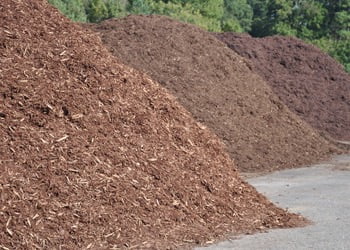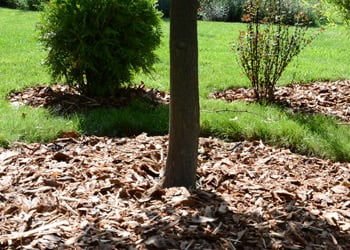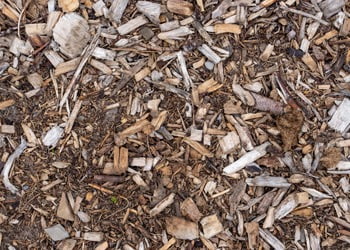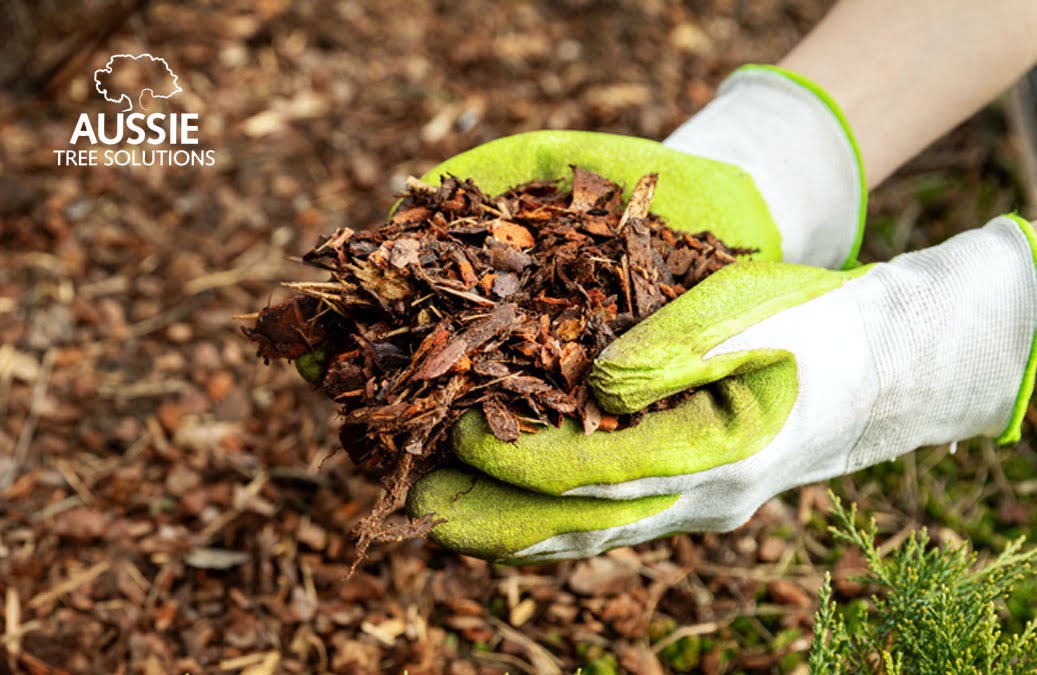Mulching your garden is often forgotten and underrated, but mulch is actually incredible stuff and can do wonders for your garden. Mulched gardens generally have fewer weeds, are better able to resist drought and are more likely to be healthier than those that aren’t mulched. When done correctly, mulching your garden can be a major time saver, by requiring less watering, weeding and fighting off pests.
Here we take a closer look at the benefits of using mulch and how you should use it in your garden for the best results.
1. Weed prevention
Pesky weeds seem to endlessly appear every other day, making weeding your garden a tiresome but necessary task. The good news is that mulch can help with your weed problem by acting as a natural barrier that prevents light and water coming through to encourage their growth. By using a layer of mulch on everything from flower beds to the veggie gardens, as well as around trees and plants, you’ll start seeing a reduction in the number of weeds popping up straight away. Win!
2. Improves soil quality
When you use organic mulch on your garden such as shredded bark, woodchips or grass clippings for example, it significantly improves the overall nutrient content of your soil, giving your plants and trees more growth potential. When the mulch breaks down it encourages earth worms who effectively aerate the soil, allowing more oxygen to flow through.
3. Moisture retention
Adding a layer of mulch to your garden allows for greater moisture retention by reducing the rate at which water is evaporated from the soil. This gives roots longer to soak up the water, meaning you won’t need to water your garden as often, or for as long.
4. Can help repel pests
Certain types of mulch can actually help keep pests away – for example, cypress mulch can help to repel termites, which is helpful if you’re using mulch around your home. if you have a particular pest problem in your garden, speak to your local Arborist about which types of mulch can help.
5. Temperature regulation
Temperature and weather changes can lead to root and soil damage, which can affect the health of your trees and plants. Mulch is a great way to help regulate soil temperature by acting as a natural insulator.
6. Mulch is long-lasting and chemical free
You’ll only need to mulch your garden 2 – 3 times a year if done right so it’s a relatively low-cost investment that you will reap the rewards from for several months. It’s also a great natural, chemical-free way to boost the health of your plants and trees.
7. It looks and smells great!
A mulched garden instantly lifts the whole look of your yard. Not only does it look great, but if you use lovely organic mulch, it will smell amazing too!
What Types Of Mulch Are There?

There’s a huge number of choices when it comes to mulch, but very basically, there are two types of mulch – organic and inorganic. Organic mulch is made of natural materials such as woodchips, leaves, bark, straw, grass clippings, pine needles or sawdust for example. Inorganic mulch is anything artificial such as plastics or fabrics. Both types have their pros and cons, and both discourage weed growth, however inorganic mulch obviously doesn’t break down and improve soil quality or have the same qualities as organic mulch. Choose mulch that’s right for your garden and what you need it to do.
Mulching Do’s And Don’ts

Get it right and you’ll reap the rewards. Get it wrong and you could do more harm than good. Mulching is simple but there are some general rules of thumb to follow.
1. Use the right type of mulch
Choose a mulch that’s right for your needs, as some plants will do much better when you use certain types of mulch. Organic mulch is generally preferable for its soil-improving qualities.
2. Don’t over-mulch
Using too much mulch is very common and can cause lots of problems. Too much mulch can become a moisture and oxygen barrier, and can cause over-heating and root rot. Try to keep mulch layers no more than roughly ten centimetres deep.
3. Don’t always use exactly the same type of mulch
Try and change up the type of mulch you use to give the soil a greater variety of nutrients. Using the same mulch on repeat can actually have a negative affect on soil nutrient composition and pH levels.
4. Don’t mulch too close to a tree
Having mulch right up against the trunk of a tree can lead to a number of problems such as root rot, pest and disease, overheating and oxygen starvation, which can make the tree sick. Keep mulch roughly twenty centimetres from the base of the tree trunk.
5. Mix it up
When reapplying new mulch, be sure to mix it up with any existing mulch to help aerate layers.
Aussie Tree Solutions are your local, fully qualified team of Brisbane Arborists. At Aussie Trees, we deliver beautiful, fresh forest mulch, ideal for a healthy, thriving garden directly to your door! Click here for more information tree mulch services, or call (07) 3351 1722 for an obligation free quote.


